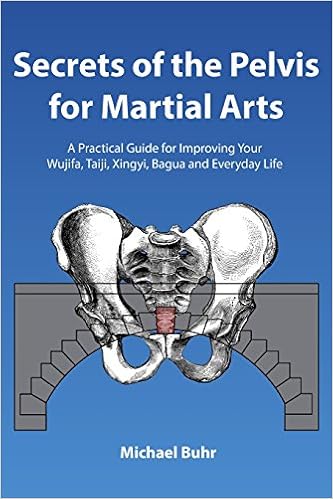Bruce Lee is famously quoted as saying, "Be like water..."
My friend and teacher, Richard Taracks wrote an interesting article titled, Be Like Water? where he references the ancient Chinese engineer, Li Bing.
I'd like to take this metaphor of water in another direction.
Imagine you had never been to a lake or ocean. You go there the first time. Somebody tells you that you can walk in the water. You walk in ankle deep water. You notice that it is different from walking on, well, now there is a distinction - dry land and wet land. You think you know how to move in water.
Then someone tells you that you can walk in knee-deep water. You try it and you notice that moving is different from walking in ankle-deep water. Now you think you know how to move in water.
Then someone tells you that you can walk in waist-deep water. You try it and you notice that moving is different from walking in knee-deep water. Now you think you know how to move in water.
Then someone tells you that you can walk in chest-deep water. You try it and you notice that moving is different from walking in waist-deep water. You also begin to notice a kind of pressure on your body and a cyclic buoyancy with breathing. Now you think you know how to move in water.
Then someone tells you that you can float in water where your feet don't touch the ground. You try
it and you notice that your buoyancy is related to breathing. Now you think you know more about water than you ever knew before. But how to move?
Then someone tells you that you can move across the surface of water. You are introduced to swimming. You try it and you discover a completely different way to move in water. Now you think you know how to move in water.
Then someone tells you that you can swim under water. You are introduced to holding your breath and different swimming techniques to swim under water. Now you think you know how to move in water.
Then someone tells you that you can see clearly and breath under water. You are given a mask and snorkel. You try it and you discover an entirely new way to experience water. Now you think you know how to move in water and enjoy all the benefits and pleasures of moving in water.
Then someone tells you that you can see and breath under water far below the surface. You are given scuba diving equipment. You try it and you discover much more about water than ever before: thermocline, buoyancy compensation, how to equalize pressure on your ears, illusion of size caused by your mask, the reduction of light with depth, how currents affect creatures around you, and much more. Now you think you know how to move in water. Indeed, you have now mastered how to move in water.
So what's the point?
After I had been practicing Tai-chi and other Chinese martial arts forms and push hands and sparring for ten to twenty years, I thought I was pretty advanced. According to this metaphor, I thought I was a scuba diver!
However, when I look back from where I am now, I would say that even after twenty years of practice, I was only walking in ankle or knee deep water! I had never transitioned to even learning how to float in water much less how to swim or dive in water!
So, we have three metaphors referencing water. Bruce Lee's "Be like water" which talks about changeability, Richard Taracks, "Be like Li Bing" which talks about learning how to control water, and my addition where I say that as practitioners, we develop through a range of experiences on the path to mastering the quality of movement found in Chinese martial arts.
The little bit of mind-body integration that developed from my everyday, normal, quality-of-movement, seemed like a huge change! And it was! But it was only the change from walking on dry land to walking in ankle deep water! It was only the first step, an introduction to mind-body integration.
When I knew very little, I thought I knew a lot. Now that I know more, I see how little I actually knew then and how much further I can go.
There is much more to learn as we grow and develop in our chosen art.
Happy practicing everyone!

